Long time followers might recall I'm somewhat of a battery nerd. It's not enough that I drive around in a battery powered car, or lug around a 500wh suitcase battery, I've also exhaustively researched what differentiates battery chemistries and how batteries in general operate.
What attracts me to batteries is their convenience. You don't have to buy some consumable fuel that needs replenishing. You just plug the battery in and go to sleep. When you wake up the following day, it's ready to go, (almost) good as new.
As an alternative to generators, batteries are quiet, they don't emit foul smelling fumes, and in fact don't need air at all to operate. This makes them suitable for use underwater (if properly waterproofed) or in space. They're very flexible in other words, useful in all kinds of situations where using combustion engines is dangerous or impossible.
Before we continue, it's important to know what a battery fundamentally "is" and how it works. A battery is electrochemical, meaning it operates on both electrical and chemical principles. More specifically a battery contains a reversible chemical reaction.
The reaction occurs between two dissimilar metals, the cathode and the anode. The chemical differences between the two metals cause them to strongly "want" to exchange ions, from one to the other. Ions are of course just free electrons, not part of a larger atom.
When the battery is discharging, a circuit is formed connecting the positive to the negative. This permits the built up electrical differential between the two metals to begin equalizing, or "discharging". Then, when current is applied, the reaction is reversed. The electrons return from one metal back to the other.
This critically means the entire reaction is self-contained. The battery does not "store" energy in the sense that electrons are "put in" when charging and "taken out" when discharging. Rather, to charge a battery is to undo a chemical reaction which is strongly inclined to occur if not prevented.
Sort of like winding up the spring in a clock. The principles of chemistry are such that those electrons REALLY want to flow from the cathode to the anode, but can't until there's a path (a circuit) connecting one to the other. When this path is established, a "load" has been placed on the battery.
The reaction then takes place until all the electrons have gone from the cathode to the anode. Recharging the battery just builds this differential back up so it can be equalized more than once. The equalization (flow of electrons) occurs between the two metals through a medium called the electrolyte.
This can be almost anything. It just has to be something conductive to ions. You can actually make a battery where the electrolyte is dirt, called an "earth battery". The acidic juice in a lemon can be an electrolyte, hence how the lemon batteries we all made in elementary school worked.
Right now batteries use liquid electrolytes, but there's been a lot of progress towards battery tech that uses solid electrolytes. These so-called "solid state" batteries would last much longer overall because solid electrolyte doesn't permit dendrites to form as easily (metallic growths on the cathode and anode which diminish their efficiency) and pose less of a fire risk if the battery is damaged.
So, what kinds of batteries are out there anyway? Perhaps the longest utilized battery chemistry is lead acid. It's been around since the dawn of electric motoring, and was in fact among the first battery chemistries invented. It was the first rechargeable battery chemistry, a quality necessary for their use in early electric cars.
Most people are familiar with lead acid batteries as the type used in gasoline automobiles for the starter motor and all electrical accessories, such as the radio, wipers and so on. These have a lead cathode and a lead oxide anode, in the form of thin lead plates immersed in sulfuric acid.
Until the invention of the valve regulated lead acid battery (called 'maintenance free') lead acid batteries needed the electrolyte topped off with distilled water, as repeated charge and discharge cycles would cause water to evaporate out of the acidic electrolyte fluid.
These days, AGM (absorbant glass mat) and gel type lead acid batteries have overcome that requirement. In AGM batteries, the sulfuric acid is absorbed into a fibrous mat of condensed glass shards, like the glass equivalent of plywood. In gel batteries, the acid is bound in a gel. Both solutions prevent most evaporation.
What evaporation does occur is captured by the battery, by design, and fed back into the electrolyte gel or mat. However excess hydrogen is produced during charging and discharging, which escapes gradually through a one way valve. Hence "valve regulated" and why we're urged not to sleep in an enclosed tent or vehicle while using a lead acid battery to charge phones or whatever else.
Lead acid batteries were invented in 1859 and are still in use today. Nothing better existed until the invention of the Nickel Cadmium (Ni-Cd) battery in 1899, though commercialization took a good deal longer. Nickel Cadmium batteries are the ones with the infamous "memory effect".
The memory effect occurs when a Ni-Cd battery is recharged before being fully drained. It "remembers" how much was left due to a property of the chemical reaction occurring inside and loses that amount of capacity the next time you try to charge it.
The very first rechargeable AA format batteries were NiCd, as well as the first rechargeable cordless electric drills and other hand tools. The energy density was enough better than lead acid (and thus, lower weight as well) to justify the major downsides of NiCd batteries at the time.
NiMH, aka Nickel Metal Hydride, is what the rechargeable AAs you've probably used are based on. They are still widely sold today, and still the most common type of rechargeable AA, AAA, D and C cell battery. Lithium ion versions do exist (covered here ) but are in their infancy by comparison.
NiMH is chemically very similar to NiCd, both using nickel oxide hydroxide as the cathode. However NiMH differs from NiCd in that it uses a special hydrogen absorbing metal alloy for the anode instead of cadmium. This results in a higher energy density, and no memory effect(!)
These qualities made NiMH the best battery technology available until the advent of lithium ion. However NiMH is not done improving. A recent development is the modification of NiMH batteries for low self discharge, as in Eneloops. Eneloop cells can sit unused for ten years before they self discharge all the way, as they "leak" power at the snail's pace of 10% per year.
Lithium batteries are the most recent on this list, having been invented in the 1970s by a scientist working for Exxon (ironically). They didn't mature to the point of being released for sale to the public until 1991, when Sony released the first consumer lithium ion batteries.
The energy density of lithium ion batteries is about five times that of lead acid, for reference. It doesn't amount to quite that big a difference in practice due to considerations like weight, but lithium battery powered ebikes (for example) do typically get 3 to 4 times the range of lead acid battery ebikes, using battery packs of the same size.
However, like how lead acid comes in AGM, gel and flooded varieties, and how NiMH comes in regular and low self discharge varieties, lithium batteries also come in a couple of different types.
Lithium ion is the most common. Energy density is good, cycle life is perhaps 500 to 800 cycles without cooling. Lithium iron phosphate has less energy density than lithium ion, but lasts for 1,000 charging cycles (or more if cooled). Lithium polymer has the fewest charging cycles, but is the most energy dense.
Probably you've seen lithium polymer batteries if you fly RC planes or drones, where they are used because they pack the most possible energy into the smallest, lightest package. They are also very volatile because of this however and many Youtube videos can be found of lithium polymer batteries exploding when punctured or overcharged:
This is less of a problem now because of improvements to the battery management electronics protecting LiPo cells from overcharging and other types of abuse, but they still carry the risk of explosion if physically damaged.
Anyways there are lots of exotic sub-varieties like Nickel Zinc, Nickel Hydrogen, Nickel Iron and the entire family of metal air batteries, but those can wait for a follow-up article. I've covered the most common ones used today, and hope you come away from this feeling that you understand better how batteries work and what differentiates battery chemistries from one another.
Stay Cozy!
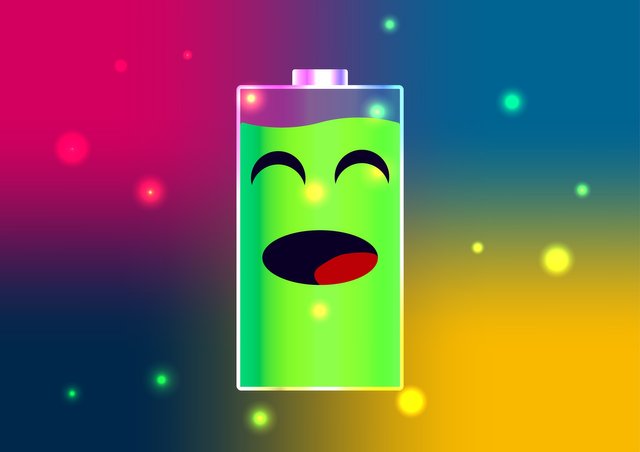
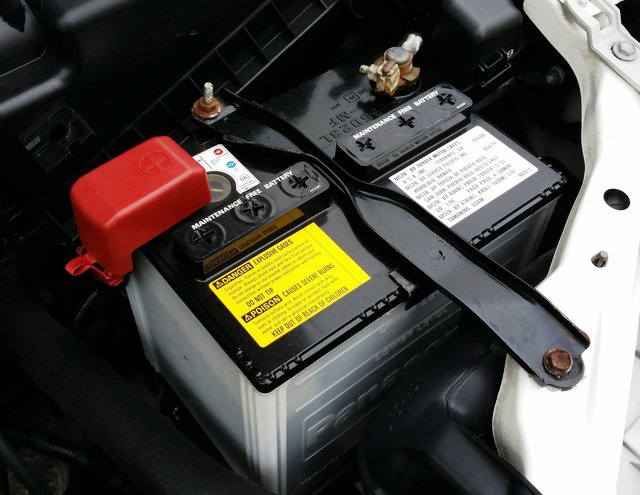
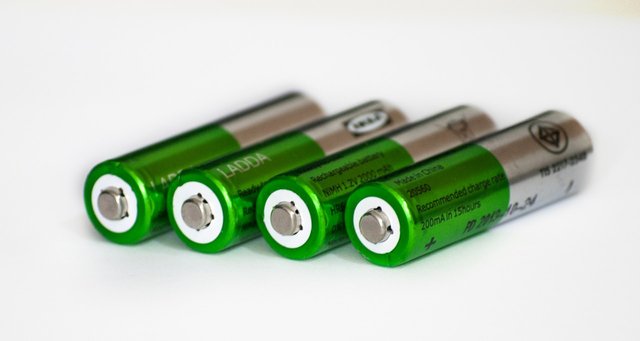
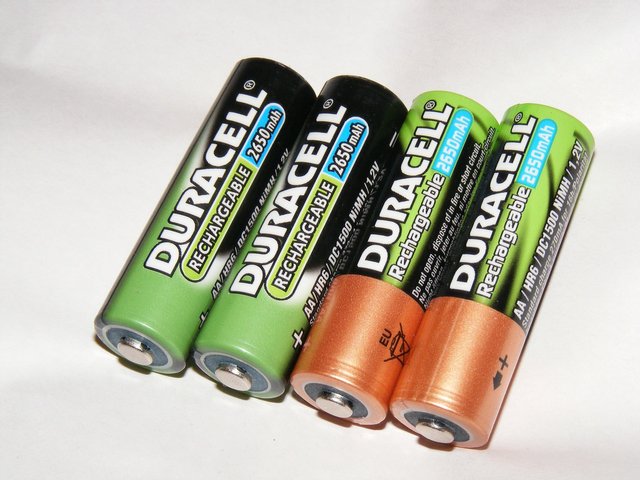
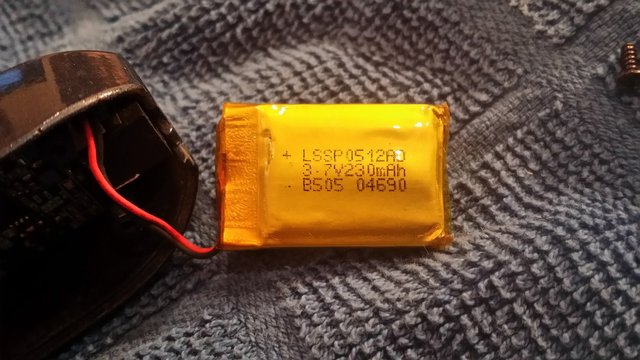
well, explained in details. I got to learn from you. I never know most of details because i am not good at science.
Thanks for the informative post. Bookmarked it, will read later in details.
Downvoting a post can decrease pending rewards and make it less visible. Common reasons:
Submit
A lot of revolutions has taken place in the energy generation industry especially batteries ... I love the way you analyzed and educated me more on batteries ... Great post buddy
Downvoting a post can decrease pending rewards and make it less visible. Common reasons:
Submit
I personally have always preferred batteries as well but batteries are still used in small scale here in Africa .
If you wana see someone making good use of batteries then you have to find a person who has a inverter...inverters make use of deep cycle batteries which allows them to be recharged after used and perhaps, that's what's incorporated in the electric car as well.
Downvoting a post can decrease pending rewards and make it less visible. Common reasons:
Submit
I try to use as much as battery powered gadgets. But I get very OC with it's charging and discharging :P
Downvoting a post can decrease pending rewards and make it less visible. Common reasons:
Submit
Wow, thanks, I learned a lot today!
"To charge a battery is to undo a chemical reaction which is strongly inclined to occur if not prevented". So true, I never thought about it that way!
Do you happen to know why the memory effect occurs in Ni-Cd batteries? (I've heard it can also occur with NiMH batteries but its reversible with full charge and discharge cycles).
Downvoting a post can decrease pending rewards and make it less visible. Common reasons:
Submit
Maybe they are seen quite common and "meh" today, but batteries are actually a tremendous science achievement that made wonders possible.
Respect.
Downvoting a post can decrease pending rewards and make it less visible. Common reasons:
Submit
My favourite battery is a potato battery from the portal 2.
It's the godfather of all batteries and the most powerful one.
Downvoting a post can decrease pending rewards and make it less visible. Common reasons:
Submit
It's kinda curious using them constantly but not really knowing how they work or are produced. (Sadly) thats a common thing in todays society, if you think about meat production for examples (kinda drifting off-topic with this)
Just sharing my thoughts! Nice written post!
Downvoting a post can decrease pending rewards and make it less visible. Common reasons:
Submit
@alexbeyman,
Today I found a guy who is powering Car Bats by using small solar plants! I think I am getting his service to make a battery powered table fan when I can use while power drops happen! After all this is one of the life changing finding of humans!
Cheers~
Downvoting a post can decrease pending rewards and make it less visible. Common reasons:
Submit
Downvoting a post can decrease pending rewards and make it less visible. Common reasons:
Submit
Your article is outstanding as always.All those info you provided on batteries are very detailed.Very nice presentation Alex
Downvoting a post can decrease pending rewards and make it less visible. Common reasons:
Submit
Nickel is the most important metal by mass in the lithium-ion battery cathodes used by EV manufacturers - it makes up about 80% of an NCA cathode, and about one-third of NMC or LMO-NMC cathodes. More importantly, as battery formulations evolve, it's expected that we'll use more nickel, not less.
Downvoting a post can decrease pending rewards and make it less visible. Common reasons:
Submit
Please what are the dangers associated with over charging a battery?could it be explosion only? Especially the phone batteries, thanks for sharing. @alexbeyman
Downvoting a post can decrease pending rewards and make it less visible. Common reasons:
Submit
Yes, many house fires used to start that way. But modern phone chargers have protection circuits to prevent over charging
Downvoting a post can decrease pending rewards and make it less visible. Common reasons:
Submit
Wow, that's lovely
Downvoting a post can decrease pending rewards and make it less visible. Common reasons:
Submit
battery is a current storage device, there is dry and wet type.
lithium chemical batteries are a new type of material for engineered battery technology, being smaller and lighter but having large amperes. battery usage will never run out and can not be separated from human life. the advantage of using electricity is that there is no pollution either smoke or air. so very safe.
Downvoting a post can decrease pending rewards and make it less visible. Common reasons:
Submit
Alex - I think the whole improvements of technology is solidly based on Electricity & battery power... I remember once my father made a natural battery by using Lemons... Those are beautiful memories...
+W+
Downvoting a post can decrease pending rewards and make it less visible. Common reasons:
Submit
Wonderful write up bro. The article is very detail opening my eyes to the types and important use of battery in our everyday life.. Nice
Downvoting a post can decrease pending rewards and make it less visible. Common reasons:
Submit
Such an interesting post, keep it up bro.
Downvoting a post can decrease pending rewards and make it less visible. Common reasons:
Submit
It will be very happy when the battery is new and not implemented quickly
Downvoting a post can decrease pending rewards and make it less visible. Common reasons:
Submit
This doesnt amaze me at all... I know soon we will have spaceship on batteries... I hope they last that much tho 😝😋😝
Downvoting a post can decrease pending rewards and make it less visible. Common reasons:
Submit
I love the way you analyzed and educated me more on batteries ... Great post buddy
Downvoting a post can decrease pending rewards and make it less visible. Common reasons:
Submit
i have one question sir...if i charge my mobile after fully 100% charge, can it hampered my mobile?
Downvoting a post can decrease pending rewards and make it less visible. Common reasons:
Submit
batteries power need now cryptocurrency!
because they are now betteries low. keep charging crypto!
Downvoting a post can decrease pending rewards and make it less visible. Common reasons:
Submit
Good post and helpful ..
Thanks for sharing @alexbeyman, please help to support me ..
Downvoting a post can decrease pending rewards and make it less visible. Common reasons:
Submit
great and informative article on batteries, thanks @alexbeyman
Downvoting a post can decrease pending rewards and make it less visible. Common reasons:
Submit
Thanks for this great post......//////
Downvoting a post can decrease pending rewards and make it less visible. Common reasons:
Submit
your article is nice. the batteries post is very important. thanks for @alexbeyman
Downvoting a post can decrease pending rewards and make it less visible. Common reasons:
Submit
Your post is golden... i think post might have its advantasges as well as thanks for sharing
Downvoting a post can decrease pending rewards and make it less visible. Common reasons:
Submit
I like the way you analyzed on battries,Now's a day battry are most important our life great blog .
Downvoting a post can decrease pending rewards and make it less visible. Common reasons:
Submit
I'm a bit of a battery nerd myself. Have you heard of salt water batteries? There was a company that was making them. They were used mainly for home solar systems and stuff like that. They are large and heavy but can go through many cycles.
The company that was making them went bankrupt but recently started producing them again.
Downvoting a post can decrease pending rewards and make it less visible. Common reasons:
Submit
Great post man. I also have an electric vehicle (and I'm waiting for my new Nissan Leaf arriving next week) and batteries are something I'm aware of.
I wonder if you're aware of the advances on solid state batteries. It seems they would solve most of the problems of Li-Ion batteries regarding safety and life span...
Downvoting a post can decrease pending rewards and make it less visible. Common reasons:
Submit
Indeed I am, and I mention progress towards solid state batteries in this article. Congrats on the Leaf, although I did not choose it for myself because of reports that the batteries degrade faster than in other electric cars. Be sure to keep an eye on that. Replacement Leaf batteries can be had as cheap as $3,000 now however, so perhaps not such a severe concern.
Downvoting a post can decrease pending rewards and make it less visible. Common reasons:
Submit
Eish you're right, you mentioned them. Seems I've skipped that part (mobile phone reading...). About the new Leaf, the first model had some degradation problems and there are rumors the 30kwh version is also problematic. About the new version I guess we'll know in a few months... But there is already the "rapidgate" problems. From what I've read, it seems like the lack of TMS on the new leaf makes the battery overheat after 2 quick charges so it limits the charging power to 22kw... Not good. Specially if you live in warm countries.
Anyway as you say the batteries are getting cheaper and if they're in good condition you can always reuse them as a powerwall. In Portugal you can swap the battery for 5k euro and still keep the used one :)
BTW I was unsure if I should buy an Opel Ampera (twin of your dear Volt) or the new leaf. I went for the leaf, hoping I won't regret it...
Downvoting a post can decrease pending rewards and make it less visible. Common reasons:
Submit
Food for thought
Downvoting a post can decrease pending rewards and make it less visible. Common reasons:
Submit
Because the Volt has TMS, and the GM guys know what they're doing. The Volt and Ampera are the best "hybrid" (not really hybrid but ok, you know what I mean) cars in the roads nowadays!
Downvoting a post can decrease pending rewards and make it less visible. Common reasons:
Submit
It would still be cooler to go full electric, so I am excited to hear about your experiences owning a Leaf.
Downvoting a post can decrease pending rewards and make it less visible. Common reasons:
Submit
I'll be posting about it once it arrives :) for now I'm very happy with my little Peugeot iOn (clone of the Mitsubishi iMiev)!
Downvoting a post can decrease pending rewards and make it less visible. Common reasons:
Submit
Being A SteemStem Member
Downvoting a post can decrease pending rewards and make it less visible. Common reasons:
Submit